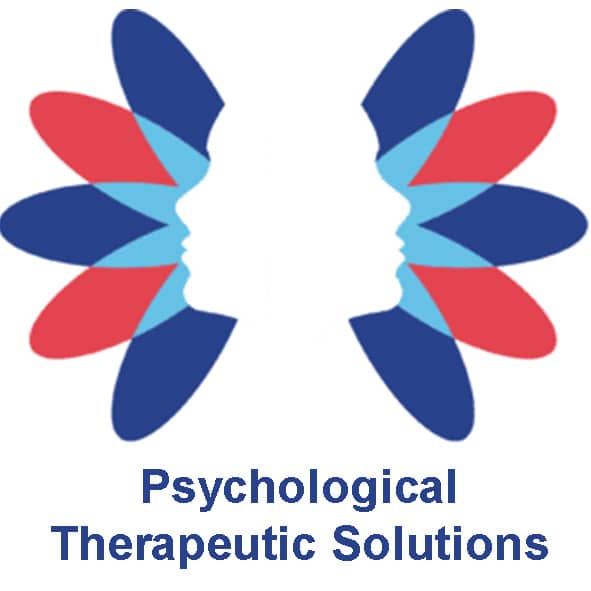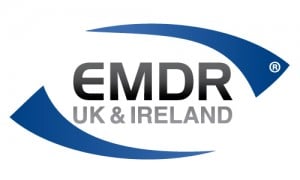Post-Traumatic Stress Disorder (PTSD) is a serious condition describing the emotional responses to a traumatic event in a person’s life.
When someone is involved or knows someone involved in a traumatic event, such as a car crash, assault or near death experience, it is very natural for that person to have emotional reactions such as anxiety and distress. This emotional reaction is expected to last for less than a month. If feelings last for longer than a month and increase in severity, it might be that the person is suffering with PTSD.
PTSD can be difficult to understand – often symptoms can continue months or years after the event and it might be hard for others to understand. The sufferer may feel a pressure to ‘get over it’ or ‘stop dwelling on the past’, but the truth is PTSD is the bodies way of dealing with the trauma it has experienced.
What causes PTSD?
PTSD can be caused by a single traumatic event, or series of events that have happened in someone’s life. PTSD can be caused by:
- Terrorism
- Road traffic accidents
- War
- Natural disasters and fire incidents
- Assault, sexual or physical
- Victim or witness to a crime
- Childhood neglect
- Diagnosis of a long term or life limiting illness
- Childhood abuse
- Traumatic childbirth
Why do we get PTSD?
The symptoms of PTSD are thought to be coping mechanisms for dealing with the stress the body and brain have gone through and even ways for the brain to come to terms with what has happened.
Flashbacks are thought to help the brain prepare in case the event happens again.
The feeling of being on edge is due to increased adrenaline in the system, getting the individual ready to ‘fight or flight’. In normal daily life adrenaline can be a useful chemical, but after a trauma levels can become elevated and struggle to return to normal.
Numbing and avoidance can be a mechanism for the brain to get some rest from constantly thinking about such upsetting events.
The hippocampus is a part of the brain which is responsible for memory creation and storage. It can be adversely affected by the levels of adrenaline in the brain, released after the event. The increased adrenaline levels can stop memories from being processed as they should, resulting in flashbacks.
Who is affected by PTSD?
Unsurprisingly, certain professions due to their working environments are much more likely to result in PTSD. But PTSD in the general population is much more common than you may think. You do not need to have been a victim of the traumatic event yourself; witnessing the event can still cause PTSD. Some people are also found to be more susceptible to PTSD than others. Sometimes this is due to how the brain processes stress chemicals released during traumatic times but a history of childhood abuse, previous mental health issues or exposure to trauma can all increase the risk of PTSD.
What are the symptoms of PTSD?
Symptoms of PTSD fall into four categories, many of which overlap. It is useful to know that you may not immediately show symptoms after the event.
In fact, in cases of complex PTSD where there have been repeated traumas (such as childhood neglect or domestic violence) it can take several years for the symptoms to appear.
Most people will show symptoms within three to six months of the event.
Intrusive memories
- Flashbacks and reliving the event
- Vivid memories
- Upsetting dreams about the incident
- Continuously thinking about the event
- Having physical reactions when thinking about the event, such as heart palpitations, anxiety or feeling sick
Negative feelings
- Loss of interest in social interaction
- Loss of libido
- Feeling despair about the future
- Being easily upset
- Physical ailments that are not explained
Numbing and avoidance
- Memory loss about the event
- Avoiding people or places that remind you of the event
- Feeling distant about the event when discussed with you
Emotional disturbances
- Feeling distressed and anxious
- Not being able to concentrate
- Sleep disturbances, trouble getting to sleep or waking
- Irritability
- Anger
- Feeling on edge all of the time
Not all people will experience all of these symptoms and some will suffer more than others; for instance avoidance is common with those who have complex PTSD but not as common in acute stress disorder.
A Paramedic’s Testimonial
I’ve been a Paramedic for 20 years and have always thought of myself as pretty resilient. Over a six month period I attended an unprecedented number of traumatic incidents which resulted in a diagnosis of PTSD. I had heard of colleagues who had been for counselling and ended up consoling the counsellor after opening up about jobs they had been to.
Warily, I went to see Dr Kingston with that in mind but need not have been worried. I was able to discuss these incidents in a safe and confidential environment.
I had been experiencing flashbacks which were reprocessed by using EMDR which, whilst unpleasant, were short lived and easily filed away. Debs explained the scientific process in a layman terms which helped me by understanding the theory behind the science.
During one of the incidents I had attended I’d been assaulted, this was more difficult to process as it linked back to a previous assault, something I hadn’t connected at the time. With Debs guidance, EMDR light bar and a lot of patience we finally put that one back in its box. For those of you in the emergency services you’ll understand the significance of that statement.
I can’t recommend Dr Kingston highly enough. She has a calm, slightly crazy approach, but she gets it. Her knowledge in her field is second to none but more importantly she empathises without patronising. A genuine thank you for literally saving my life.
What can be done to help?
Seeking help for PTSD is really important.
Left untreated PTSD can seriously impact on the individuals’ life – relationships with family and friends can deteriorate and it can become really hard to carry on working. Sadly many people turn to drugs or alcohol as a way of coping.
The good news is that people who experience symptoms of PTSD respond well to treatment. Medication can help ease some symptoms such as depression and anxiety, but you will need to discuss these issues with your GP, however, medication will not tackle the cause of PTSD.
Trauma Focussed-Therapies such as Trauma Focused Cognitive Behavioural Therapy (TF-CBT) or Eye Movement Desensitization Reprocessing (EMDR) can help the individual come to terms with the traumatic event, develop coping mechanisms and deal with the aftermath of the event. EMDR can be very useful in reducing the distress experienced when remembering the event – it works by helping the brain unblock the memories which have become frozen on a neurological level.
If you think you are experiencing symptoms of PTSD and would like to talk, free of charge, about booking a private assessment please call 07890988379.
Useful Links:
http://www.rcpsych.ac.uk/healthadvice/problemsdisorders/ptsdkeyfacts.aspx
For service and ex-service personal help is also freely available at http://www.combatstress.org.uk/veterans/
A Royal Marine’s Testimonial
I left the Royal Marines in 2019 and on leaving began to struggle with my mental health. Although I assumed the transition was going to be relatively easy it became apparent really quite quickly it was not. I eventually found the strength to admit I was suffering and decided to seek professional help.
Initially I was referred to a Consultant Psychotherapist who made a diagnosis of PTSD.
Unfortunately I believe my initial treatment was somewhat perfunctory; I really didn’t feel as though the treatment was working and, therefore- I was referred to Dr. Kingston. Being former military, Deborah immediately empathised and I was reassured that there really was some hope of a more optimistic outlook.
It was during these sessions that Deborah introduced me to Eye Movement Desensitization and Reprocessing (EMDR). Clearly- speaking from an unqualified laymen in such a field I can only comment on the results for me personally: the results were tangible, rapid and effective. Admittedly, although the sessions were sometimes extremely uncomfortable, I was reassured that they seemed to be of enormous benefit. The act of reprocessing difficult memories, which sat in my conscious and subconscious memory, assembling them into some kind of order and then “storing” them was an incredibly effective treatment that has undoubtedly changed my life.
Dr. Kingston was incredibly supportive throughout the sessions; always careful about the care and preservation of my mental state, ever considerate of how far to push, when to push a little further and indeed when to retract. I cannot thank her enough for her incredibly sensitive approach; she manages to find an incredible balance of empathy, understanding and professionalism clearly borne out of an innate passion for her field of study.
To conclude (as a veteran) I would wholeheartedly endorse EMDR as a force for good in such a sensitive and unfortunately prevalent subject. We not only have a duty to care for our veterans after their selfless service; but moreover- we are morally obligated to do so.



